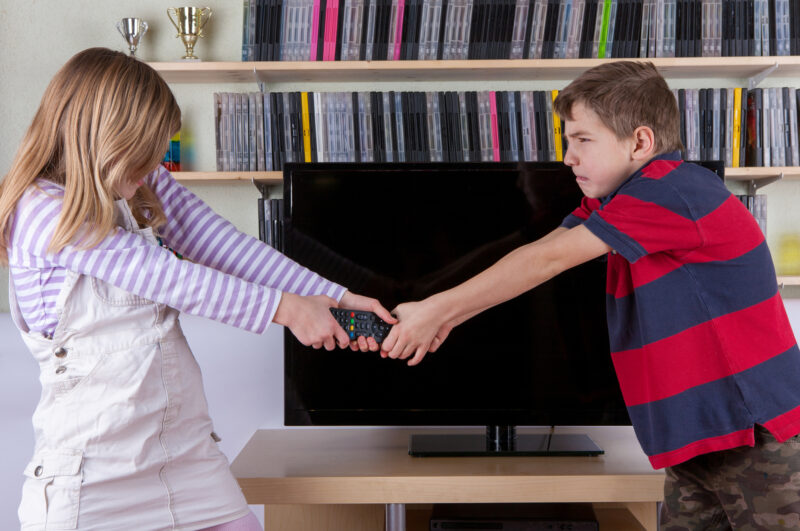Article in: Northern Virginia Magazine
Written by: JESS FELDMAN
We chatted with NoVA clinical social worker Sheri Mitschelen about easing sibling tension for the duration of summer break and beyond.
Summer vacation is a time for outdoor play, relaxation and a whole lot of family time. While that is all well and good, there are also negative aspects to the close-knit atmosphere that become apparent during the summer months. As your kids become less occupied with school, sports and other extracurricular activities, they have more time to participate in verbal (and sometimes even physical) squabbles with each other, leaving you to mend the sibling drama.
When your little ones become bored, conflict tends to increase within the household, according to Owner and Clinical Director Sheri Mitschelen of Crossroads Family Counseling Center in Fairfax. Mitschelen has been in private practice for almost 25 years and here, she shares tips for mitigating the inevitable sibling tension that may arise this summer.
Set basic rules from a young age
No matter the type of parenting you practice, setting up basic rules when the children are young is a great way to ensure each child—and you as parents—are happy. These rules can be broad, like saying ‘no violence,’ but Mitschelen recommends making them more specific, such as ‘no hitting,’ ‘no biting,’ or ‘no kicking.’ In addition, it’s important that each member of your family sticks to consistent consequences, as well.
“It gives kids a sense of safety if they know what’s going to happen if they do break the rules,” says Mitschelen. “Parents often think that it’s a given, but sometimes spelling out those rules is really helpful.”
Create a routine
While the summer brings more freedom, it also typically brings less order to your family’s lifestyle. According to Mitschelen, when children know what to expect for the day, they feel safer, more comfortable and less irritable.
“One of the main things I recommend to parents is creating a set of structure,” says Mitschelen. “Even if in the morning we have playtime, then lunch, then an activity of some sort like going to the pool … any form of schedule really helps kids.”
Designate alone time with each child
During the school year, each family member’s schedule is immensely busy, making it rare for parents to get alone time with their children. According to the American Psychological Association, the one-on-one time parents give their children during the week is typically time that’s left over after other obligations are completed, such as housework or bill-paying. So this summer, save the chores for later and take advantage of the free months your kids have by planning quality time with each one.
“Oftentimes kids are fighting because they don’t feel like their needs are being met, so setting alone time with each child is very beneficial,” Mitschelen explains. “I find that the more parents can do that, often times kids are more likely to get along because they’re getting special alone time with each parent.”
Ensure the eldest child gets attention, too
When a new child comes into the family and you are taking care of his or her basic needs, the eldest sibling is bound to get jealous. If accidental parental favoritism goes unchecked, though, there can be serious lasting effects for both kids, such as depression, according to a 2010 study published in the Journal of Marriage and Family. When one child feels less attended to than the other, Mitschelen says parents need to make the eldest child feel special, too.
“Definitely give your eldest child some special privileges that your younger child isn’t getting, like staying up later than the younger sibling or helping with specific tasks around the house,” says Mitschelen. “This gives them a sense of importance within the family.”
Reward positive behavior within the household
Mitschelen strongly believes in the concept of a “cooperation jar.” Here’s how it works: Each time one of the kids does something that benefits his or her brother, sister or even parents, an object—marble, coin or anything else that will fit—goes in the jar, and then there will be a reward. While this is a year-round system, it’s especially helpful during the summer months when your family time is at an all-time high. This is something fun the family can do together and according to Mitschelen, it really works.
“Kids really like getting that positive attention,” Mitschelen says. “Maybe there’s a prize or something the families can do together, like a movie night or pizza party. I have kids come into my office and they’re like, ‘Oh yeah, I got something from the cooperation jar!’ and they love to share how they contributed to that.”
Jess Feldman is Editorial Assistant at Northern Virginia Magazine
